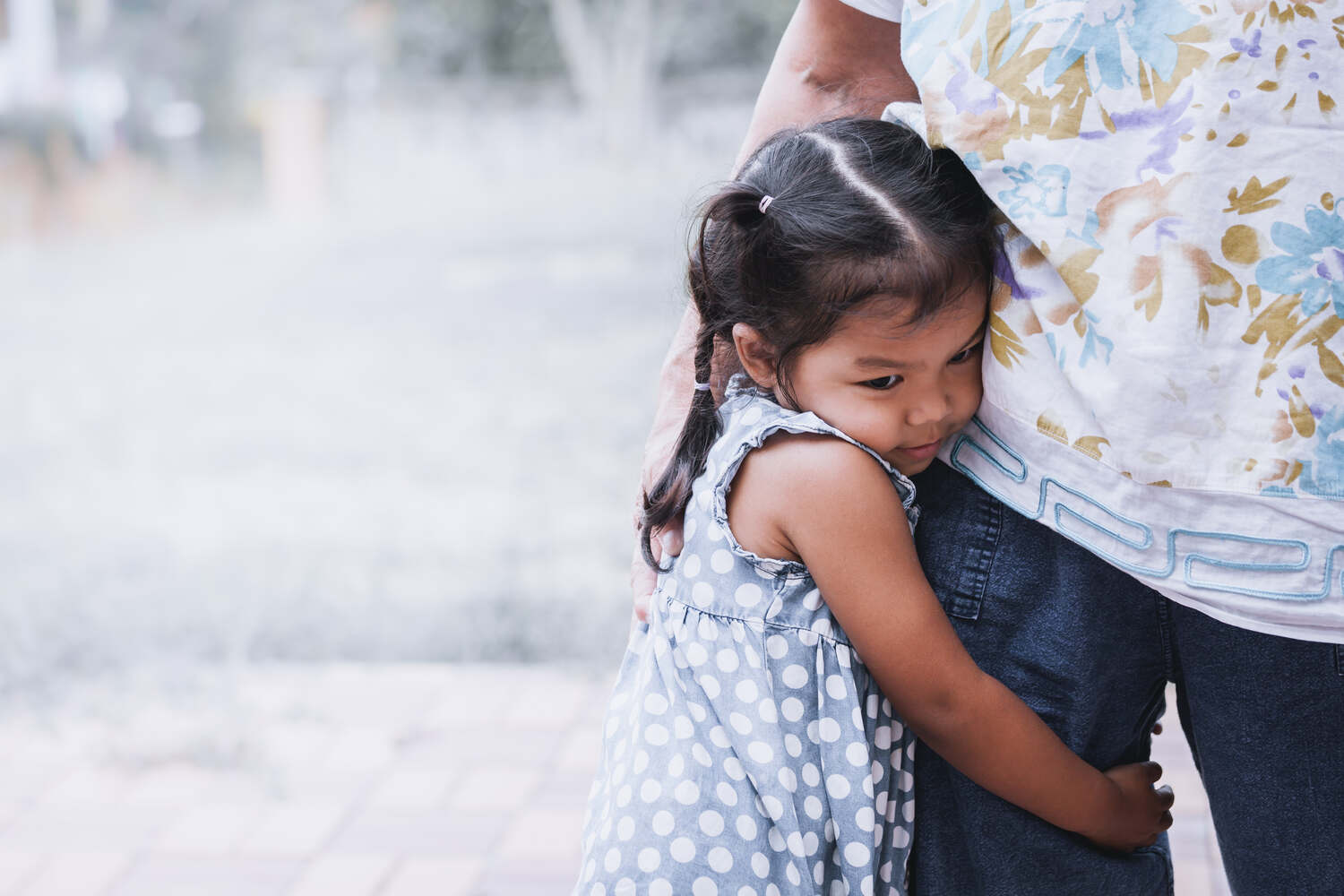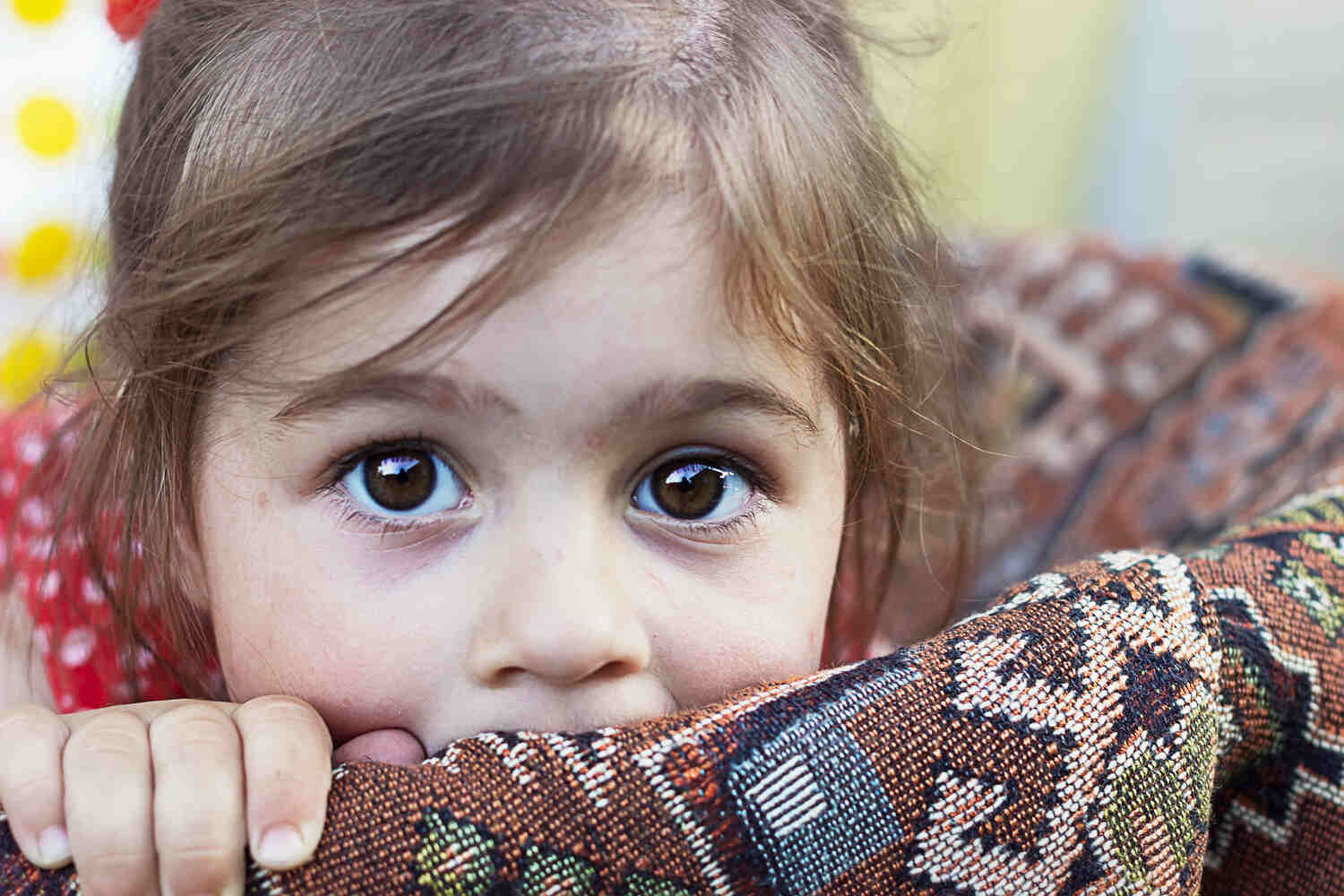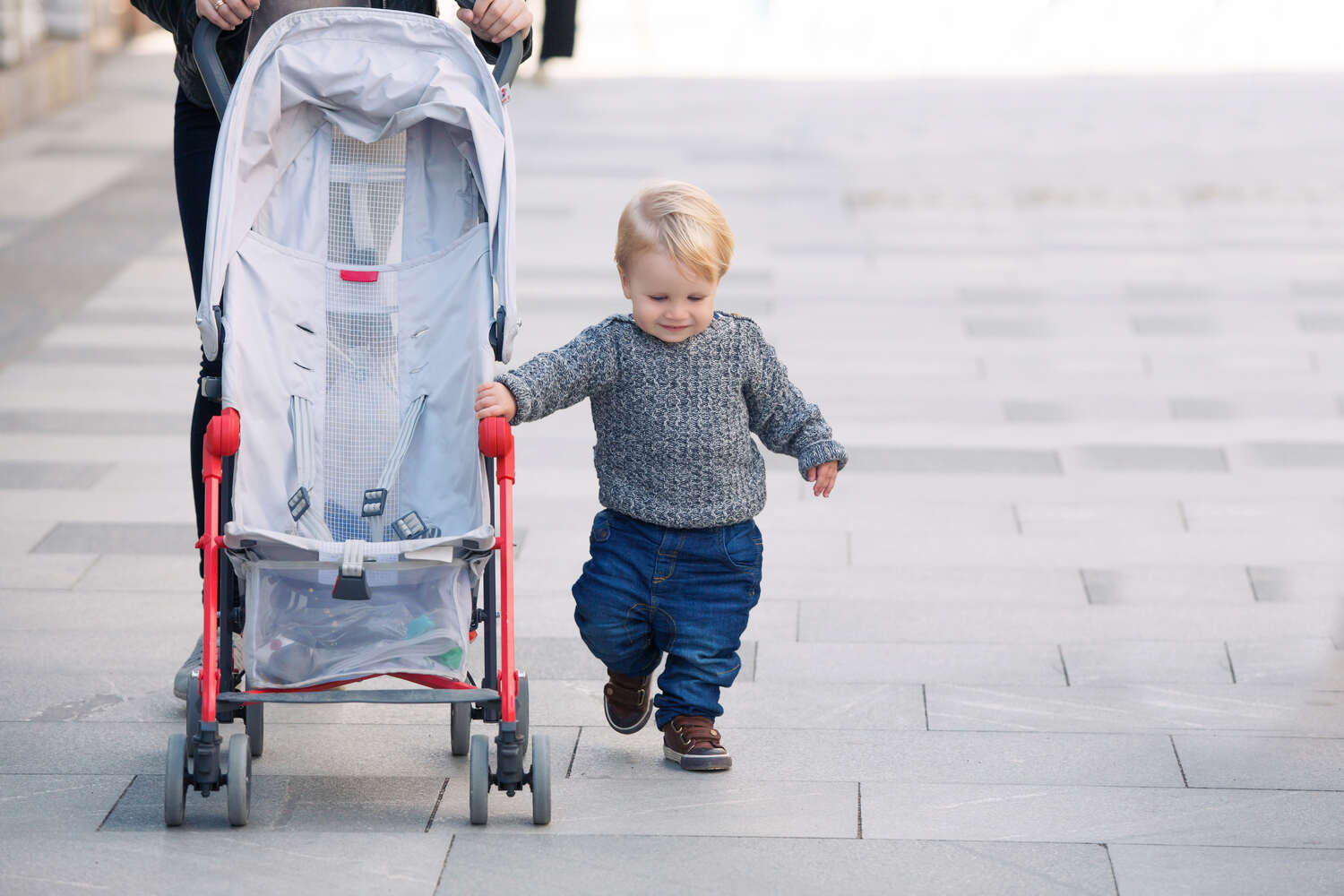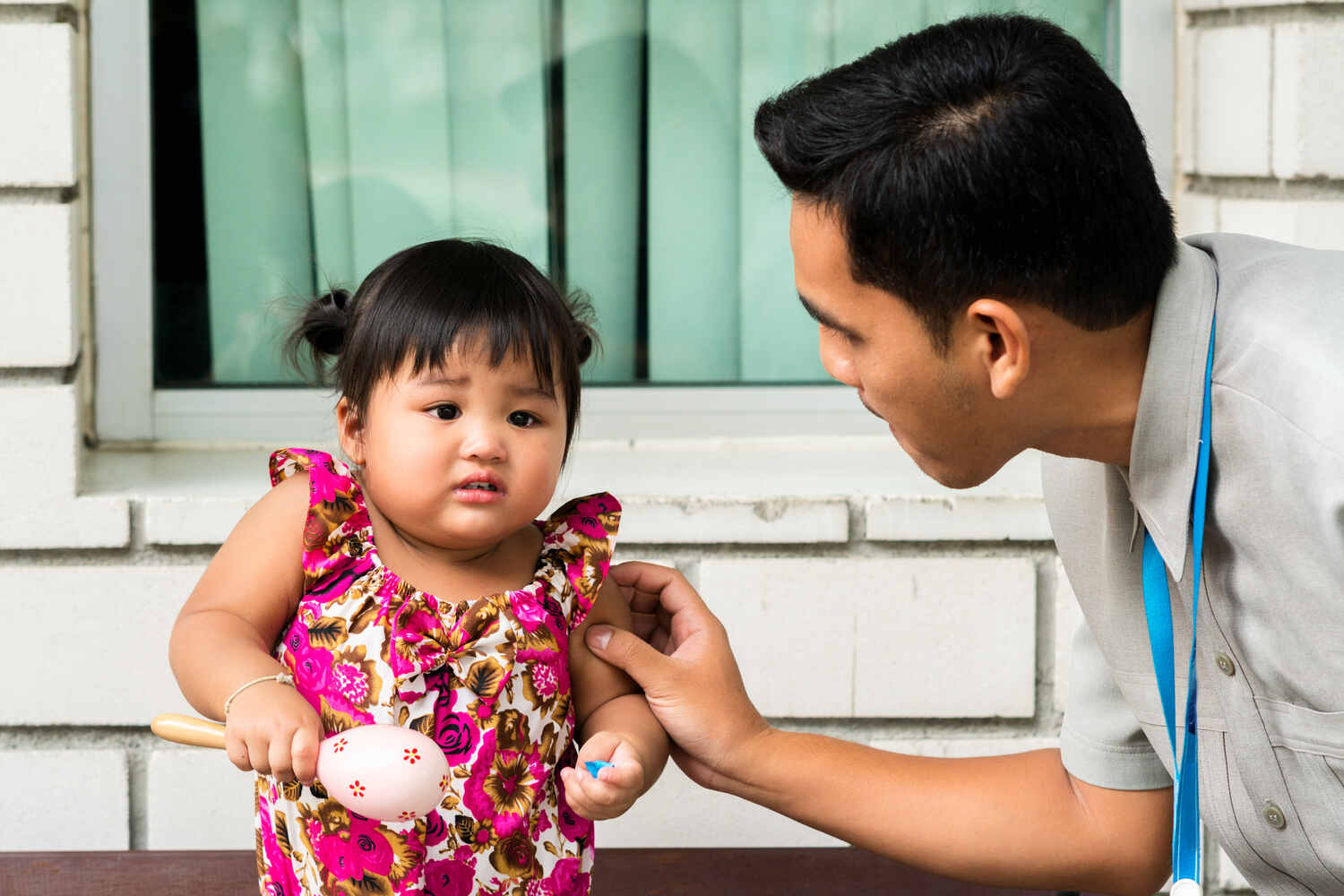
Fear of strangers is a natural response that stems from feeling unsafe around unknown people. It serves as a protective shield, helping toddlers to differentiate between known caregivers from those they do not know. However, this sort of issue can make parenting even more tricky and daunting.
This is a common developmental phase of toddlerhood that makes the parent ask, “How can I tackle my toddler’s fear of strangers?” With time and gentleness, parents can help their tiny tots overcome their fear of unknown faces easily.
In This Article
- What is Stranger Anxiety?
- Why Are Toddlers Afraid of Strangers?
- Signs And Symptoms of Stranger Anxiety in Toddlers
- Some Common Issues Associated With Stranger Anxiety
- How to Help Your Toddler Deal With Stranger Anxiety?
- Things to Avoid
- Can You Prevent Stranger Anxiety in Your Toddler?
- How Long Does Stranger Anxiety Last in Toddlers?
- FAQ’s
What is Stranger Anxiety?

Stranger anxiety refers to an instinctive discomfort and fear that toddlers show in front of people they do not know. The toddler displays signs of distress in the form of crying, or clinging to familiar people around. Research studies have shown that fearfulness in front of unknown people can start around 6 months of age and increase in the first year of life (1).
Why Are Toddlers Afraid of Strangers?

Fear of strangers in toddlers can stem from various reasons-
- As toddlers are used to recognizing only known faces, they feel anxious and uneasy with strangers
- Fearfulness of strangers acts as a protective measure. The toddler just wants to feel safe and secure
- The toddler may feel afraid of strangers due to limited exposure to unknown situations
- Toddlers may perceive the unfamiliar person as a threat to their wellbeing
- The fear arises from toddlers imitating the negative reactions of other family members towards the stranger
Signs And Symptoms of Stranger Anxiety in Toddlers

The signs and symptoms of stranger anxiety may vary from one toddler to another with respect to intensity and duration. However, some of the common signs remain same such as the ones given here-
- Crying or screaming
- Hiding behind the caregiver
- Moving to a different room
- Avoiding eye contact
- Showing a nervous facial expression
Some Common Issues Associated With Stranger Anxiety

Toddlers may also show stranger anxiety with people who they do not see quite often. such as grandparents or distant relatives. At times, this type of anxious behavior manifests the following issues-
- Refuses to go to unknown places
- Tries to have safe distance from unknown people
- Becoming too silent in front of strangers
- Fearful facial expressions
- Physical symptoms like trembling
How to Help Your Toddler Deal With Stranger Anxiety?
As parents, you can tackle your toddler’s fear of strangers in the following ways-
1. Tell Your Toddler What to Expect

Make sure your toddler is not caught off guard. Tell them in advance who is going to visit and prepare them for it. Explain to them that the guests are close to you and want to be their friends. This way they know someone is coming and understand they are safe.
2. Give The Other Person a Heads up

Just like you prepare your toddler, advise your guests against picking your tiny tot the moment they arrive and overwhelm them with kisses and cheek-pulling. Explain to them your toddler prefers a more gradual approach and assure them that you will ease your kid into it.
3. Acknowledge Their Fear

Do not ridicule your toddler’s fears. If your little one is showing discomfort, then rather than pushing them to behave (“don’t be shy, come on, say hello”), hug and comfort them. Take them to some place away from the new faces and tell them that it’s okay and assure them you are not disappointed or angry.
4. Expose Them to Public Places

One way to get your toddler used to seeing new faces is to take them out often. Try to find time for at least one small outing daily (to a nearby park or play area) and one bigger outing weekly (to a mall or zoo). Once they familiarize themselves with the new place, start introducing them to people whom you know. More new people they meet while at a safe distance, the better they will get at dealing with their fear.
5. Be Patient
As with anything related to your toddler, you cannot expect to remove this fear in a day. If you push them too hard from the second day, it will be counterproductive. If you give up after just one or two weeks, then it will not help them.
6. Engage in Pretend Play

Practice how to deal with strangers through role play. You and your toddler can take turns to be a stranger. Discuss how to greet a stranger and how to react when a stranger does something your toddler does not (like picking up and kissing, for instance). More prepared they are, the less afraid they will be.
7. Make Them Independent

The fear of strangers usually passes on its own by the time the toddler is 2 years old. However, if it continues past their second birthday, it might be because you are over-protecting/shielding your tiny one and not giving them enough chances to socialize. Try to make them as independent as age permits. And expose them to new people. This will help them come out of their shell.
8. Seek Help
Sometimes extreme fear of strangers can lead to social anxiety as the child grows older. If you think your toddler’s fear is getting worse with time, or if there is a family history of social anxiety, then it might be a good idea to talk to the doctor.
Things to Avoid

Parents need to realize the fact that stranger anxiety is common in the age group of 6-36 months with varying intensity (2). Parents need to avoid doing certain key things that would definitely help the little one overcome the fear gradually-
- Avoid forcing interactions with strangers if toddler is crying excessively or shaking out of fear
- Never brush off their fears and assure them that you’re available for support
- Limit exposure to people and situations that are too noisy for the tender little one
- Avoid reacting negatively by screaming at them
Can You Prevent Stranger Anxiety in Your Toddler?

It may not be possible to prevent stranger anxiety in your toddler in every situation. However, you can lessen the severity by following some simple tips and tricks, such as –
- Stay happy and calm in front of people who are new to your toddler. Talk to them with smiles and hugs so that the toddler feels safe
- Give your toddler enough time to mingle with the new person. Never rush into the process
- Offer physical comfort to the toddler and tell them that the stranger person is a loving person
How Long Does Stranger Anxiety Last in Toddlers?

Fear of strangers may start around 6 months and usually peaks around 2 years. However, as the toddler enters early childhood years and goes to pre-school, their fear gradually subsides. Regular exposure to unknown people and situations helps them to overcome the fear.
Toddler’s fear of strangers is an instinctive response, in an attempt to keep themselves safe in an unknown world. While it causes distress to both the little one and the parent, understanding its temporary nature and providing support at the right time is important.
[Read more about coping with a clingy child here .]
FAQ’s
1. Is it Normal For Toddlers to be Afraid of Strangers?
Yes, it is entirely normal for toddlers to be afraid of strangers. The fear acts as a protection from harm and threat that the tiny tot thinks as real.
2. Why is my 3-Year-Old Not Afraid of Strangers?
Your 3-year-old may not be afraid of strangers due to their outgoing nature, or maybe they are used to seeing and meeting many unknown people regularly.
3. How do I Teach my Kid to Deal With Strangers?
You can teach them by discussing safety measures while they encounter a stranger, like how to approach them. Moreover, role-playing scenarios can help toddlers understand how to behave in a calm manner when strangers approach them.
4. How do I Make my Toddler Comfortable With Strangers?
When trying to make your toddler comfortable with strangers, you can gradually expose them and never force interactions. Moreover, provide reassurance that you’re there for support. You can also model gentle and positive behavior with the stranger and show that they are safe to interact with.
References
- The Development of Stranger Fear in Infancy and Toddlerhood: Normative Development, Individual Differences, Antecedents, and Outcomes – [https://www.ncbi.nlm.nih.gov/pmc/articles/PMC4129944/]
- Infant Stranger Fear Trajectories Predict Anxious Behaviors and Diurnal Cortisol Rhythm during Childhood – [https://www.ncbi.nlm.nih.gov/pmc/articles/PMC5509479/]
